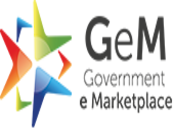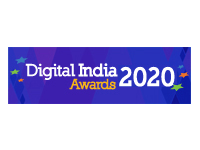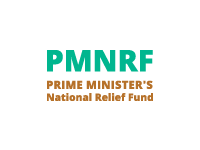Subhada Nagarkar
Pune-Net, Bioinformatics Centre
University of Pune, Pune-411007
URL: http://punenet.ernet.in, http://202.41.70.50/index.html
Email: punenet[at]bioinfo[dot]ernet[dot]in
Abstract
Pune-Net after its establishment in 1992 has accomplished different activities, viz. creation of various databases covering books, journals, library professionals, etc. of the Pune city and made those available on the Internet. The article explains current status of Pune-Net including its major achievements and provides next two years preview.
INTRODUCTION
Pune-Net (Pune Libraries Networking Project) is a joint programme of the University of Pune, the Centre for Development of Advanced Computing (C-DAC) and the National Chemical Laboratory (NCL) being funded by National Information System for Science and Technology (NISSAT) of the Department of Scientific and Industrial Research (DSIR), Government of India. It is hosted in the Bioinformatics Centre.
It maintains centralized databases of information resources available in the participating libraries and is accessible over the Internet at http://punenet.ernet.in or at http://202.41.70.50/index.html. A user can search books and periodicals database online from this site and know the location of the desired information source in the participating libraries.
OBJECTIVES
The main objectives of Pune-Net are:
-
To interconnect all the libraries in the Pune city through a computer communication network.
-
To facilitate active information exchange, and enable users to keep themselves up-to-date as to the availability of books and journals at various libraries of Pune city.
-
To help in increasing cooperation amongst the participating libraries and coordinate the activities so as to serve the user community efficiently, and
-
To provide various information services to all participant libraries and their users by using various information sources, CD-ROMs and Web-based databases.
MAJOR ACHIEVEMENTS
The major achievements among others include the creation of booksellers database, library professionals database, successful installation of radio modem link between NCL and Bioinformatics Centre, creation of independent Web site of Pune-Net, etc.
Databases on the Pune-Net
At present Pune-Net hosts the databases mentioned below. These databases are updated yearly. Users can search these databases online using its Web site.
Database of Books: The database contains 1,08,853 records from 20 participant libraries of Pune-Net. A user can conduct simple or Boolean searches to locate his desired item.
Union Catalogue of Periodicals: This database contains 6425 records pertaining to various libraries in the Pune city. Currently data from 60 libraries are available online.
Booksellers database: There are several booksellers in Pune . Pune-Net is trying to provide information on the books available with these booksellers. This will be of great help to librarians and users to locate latest books in subjects of their interest. Currently, Pune-Net has two bookseller's data on its server and more data from other booksellers will be added in near future. The booksellers are keen in sharing this information with Pune-Net.
LIS professionals database: A database of LIS professionals has been created using Microsoft Access. This database provides information about library professionals working in Pune City with their subject expertise.
Pune-Net libraries database: A database of libraries participating in Pune-Net has been created using Microsoft Access. From this database users can find details of each library, viz. name, research area, name of the librarian, rules, timings, etc. The database is updated regularly.
Direct access to libraries: Access to C-DAC and Jayakar Library has been provided on-line through HTML interface. This has become possible because of the existing University Fibre Optic Network. Using this facility the user can directly access these libraries, and get more information regarding the lending status of a particular book (issued, on shelf, etc.) It gives not only access to the books recorded in these databases of these libraries but also the holdings of the libraries including CD-ROM databases, microfiche, video cassettes, etc. With the commissioning of the link between NCL and Bioinformatics Centre, NCL library data has become accessible directly from Pune-Net.
Data standardization
Data from participating libraries is being collected and stored at the Pune-Net server. Each participating library is using different library management software. Standardized data input becomes vital under such circumstances. Pune-Net is following its own standard, based on the international standard for information exchange - ISO 2709. This also helps in indexing.
Pune-Net Services
Apart from Pune-Net database services, it provides also the following services to users.
-
E-mail and Internet Connectivity: Pune-Net not only provides e-mail facility to participating libraries but also acts as a gateway to the Internet. In all, 36 libraries are using e-mail and Internet facilities. Because of the installation of three telephone lines, users are able to access the Pune-Net server and data several times without any difficulty.
-
CD-ROM Database Services: Pune-Net subscribes to a few bibliographic databases on CD-ROM, such as Inside Science Plus and Inside Humanities and Social Sciences by BLDSC. It provides table of contents (TOC) service based on over 10,000 high impact current serials.
As the Pune-Net project is hosted in Bioinformatics Centre (BIODIC), bibliographic databases subscribed by the BIODIC are also being used to serve the needs of Pune-Net users. These databases are
� Wealth Asia ( distributed by NISCOM, New Delhi),
� Medline
� Biotechnology Citation Index.
� Dewey Decimal Classification system on CD-ROM. -
Online Search facility - STN and Bioline database services: STN provides access to several databases covering almost all subject areas. Bioline, U.K. provides access to 40 full text journals in life sciences. It has full text access to three Indian journals as well. Further assistance is provided to download references from these vendors as Bioinformatics has its own subscription to STN and Bioline. These services are available on charge basis.
-
Current Awareness Service (CAS): To provide bibliographic access to current literature, Pune-Net is subscribing Inside Information database on CD-ROM. Based on this, Pune-Net is offering current awareness service to PI and their users.
-
Photocopy Services: Photocopy services are available to the Pune-Net users on charge basis. This facility is being utilized from Bioinformatics centre.
-
Radio Link between NCL and Bioinformatics Centre: Previously there was a problem with the radio link. It was functional only in one direction i.e. from NCL to Bioinformatics Centre. Now the problems have been solved and it has become functional from both sides
-
Individual Log in and Passwords for Libraries: Individual log in and passwords for libraries has been issued for short period of time.
FUTURE PLANS
-
Incorporation of Various Standard Formats: Currently most of the libraries in Pune city adhere to standard library databases like LIBSYS, CDS/ISIS, SLIM, etc. which have incorporated ISO 2709 format. But there are also other library standards like LCMARC, CCF, etc., which are used by libraries all over the world. Sharing of bibliographic records among the databases should not be difficult at all, if all of them maintain the same internal format. Otherwise it is imperative to develop a customised exchange program to convert the records for transporting them from one particular database to another which is time consuming. By using these standards Pune-Net's database can be shared with other international databases.
-
Utilisation of CD-ROMs: With LCMARC CDs available on Pune-Net the user can get more information on a particular book in machine-readable form with the help of ISBN numbers. This methodology is useful for the libraries for retrospective conversion.
-
OCR Techniques: Print/hand-written catalogue cards can be easily converted into electronic form by using optical character recognition (OCR) techniques. This would be useful in generating large amount of data for Pune-Net. This technique is also useful to convert old research papers into electronic format to keep those online for researchers.
-
Indian language databases: Various libraries contain many old and valuable manuscripts, books, etc. in many of the Indian languages. A feasibility study is to be conducted for incorporating the Indian language databases into the Pune-Net.
-
Ulrich's Plus Database: Currently the Periodicals Database on Pune-Net contains minimal information of the periodicals such as the title, frequency, holdings etc.
More information will be provided by using Ulrich's periodicals database such as subject coverage of the journal, address of publisher, price, etc. -
Online Updating Routines: A technique to implement on-line updation of records from various libraries is going to be evolved in near future. This would help in updating the Pune-Net database online on regular basis.
CONCLUSION
Apart from the expansion of databases and addition of archival information, Pune-Net will implement several new activities in near future. At present more than twenty libraries are depositing their library data at regular intervals using e-mail or floppies. Moreover, data will be collected from those libraries which have not yet started automation. Specialised techniques will be used to transfer the data from paper to electronic media. Pune-Net will also conduct various seminars and training courses for librarians to improve their skills. It aims to provide several links to worldwide resources useful for library and information science professionals; render more bibliographic services to its users in near future. Thus, Pune-Net intends to assist librarians, users, students and others interested in accessing and disseminating information on the region.





















